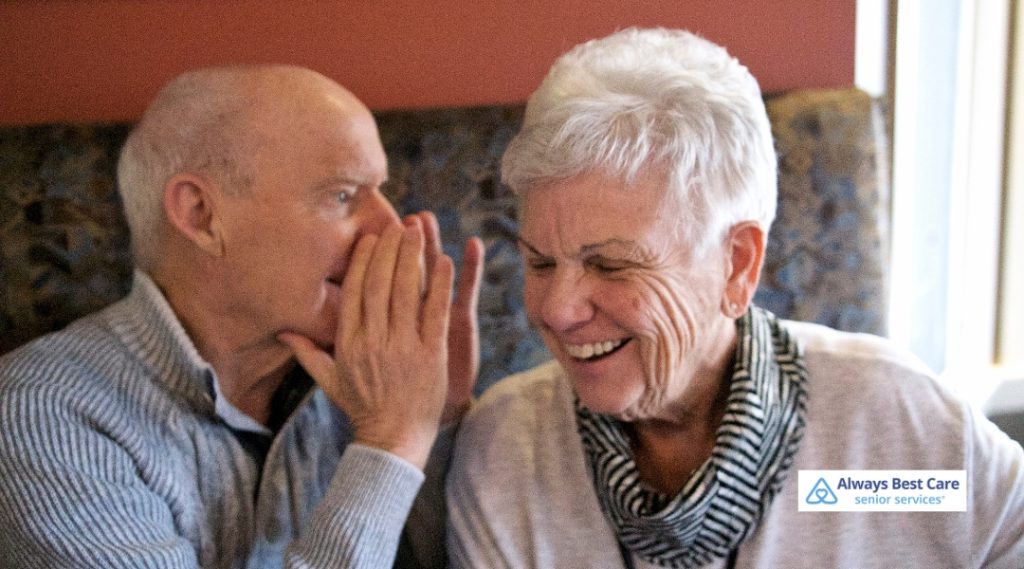When the Volume Rises: Navigating Sensitive Conversations About Hearing Loss

We all want our loved ones to stay happy, connected, and independent as they age.
But what happens when Grandpa keeps turning up the TV, or Grandma starts missing punchlines at family gatherings?
Tackling this tricky topic takes more than just a good ear; it calls for patience and compassion.
At Always Best Care of Westerville, we’ve seen how a gentle nudge in the right direction can open doors (and ears) for better days ahead.
What you will learn:
- How to recognize the early signs of hearing loss in loved ones and why these signs can sometimes be mistaken for other issues.
- Approaches for starting sensitive conversations about hearing loss with empathy, patience, and practical communication tips.
- Ways to break down the stigma around hearing aids and hearing support, and how professional caregivers can help maintain independence and quality of life for seniors.
Table of Contents
Recognizing the Telltale Signs of Hearing Loss
Spotting hearing issues early isn’t always straightforward. Sometimes it looks like forgetfulness or confusion. Here are some common red flags:
- Repeatedly asking others to speak up or repeat themselves.
- Turning TVs or radios louder than usual.
- Complaints that others are mumbling (when they’re not!).
- Withdrawal from social gatherings.
- Seeming “checked out” during conversations.
- Responding oddly due to mishearing questions.

Approaching the Topic with Heart
Timing is everything! Don’t bring up hearing loss during an argument about last night’s sitcom volume levels. Instead:
- Pick a calm moment when no one feels rushed.
- Share your concerns using “I” statements:
- “I’ve noticed it seems harder for you to follow our chats.”
- “I worry you might miss out on special moments because you can’t hear everything.”
Breaking Down Stigma & Calming Fears
Many seniors fear that acknowledging hearing trouble means admitting defeat. But here’s the thing: needing help doesn’t mean giving up control; it means making life easier!
Remind them:
- Hearing aids today are tiny wonders, not clunky embarrassments.
- Lots of folks need glasses; why should ears be any different?
- Getting support helps keep them safe and socially active, not stuck on the sidelines.

Helping Your Loved One Take Action
Change takes time (and sometimes more than one conversation). Here’s how we suggest moving forward:
- Offer practical help: Schedule appointments with doctors or audiologists.
- Go along for moral support if they’re nervous.
- Stay positive but patient; don’t push too hard all at once.
- Celebrate small steps (“Hey, you made that call!”).
How Always Best Care of Westerville Lends a Hand
At Always Best Care of Westerville, supporting clients with changing needs, including hearing challenges, is part of what we do best. Our trained caregivers understand the importance of clear communication for both safety and overall well-being.
We can assist by:
- Ensuring instructions aren’t missed due to muffled speech.
- Keeping loved ones engaged in meaningful conversations.
- Reminding them about medical appointments (or tagging along).
By providing reliable companionship and tailored care, we aim for each person not only to feel heard but truly understood.

FAQ About Discussing Hearing Loss & In-home Support
Q: How do I know my parent really needs help?
A: If they consistently turn up devices loud enough, neighbors notice or shy away from group talks, it could signal trouble worth checking out.
Q: Isn’t wearing hearing aids embarrassing?
A: Not anymore! Modern options are discreet—even stylish—and far less obvious than shouting “What?” across every room!
Q: Can caregivers actually improve my parents’ quality of life if their hearing declines further?
A: Absolutely! With experience handling these sensitive topics respectfully, caregivers ensure messages get through clearly, avoiding unnecessary risks while keeping spirits high.
Q: Does getting support mean losing independence?
A: Far from it! In fact, most seniors regain confidence knowing someone has their back without taking over completely.
Take the First Step: Compassionate Hearing Support Starts Here!
At Always Best Care of Westerville, we’re ready whenever you need guidance connecting your loved one with compassionate care solutions, from answering questions about signs and symptoms right down to hands-on support where it counts most.
Contact Always Best Care of Westerville at (614) 284-6764 to learn more and schedule your free consultation.





